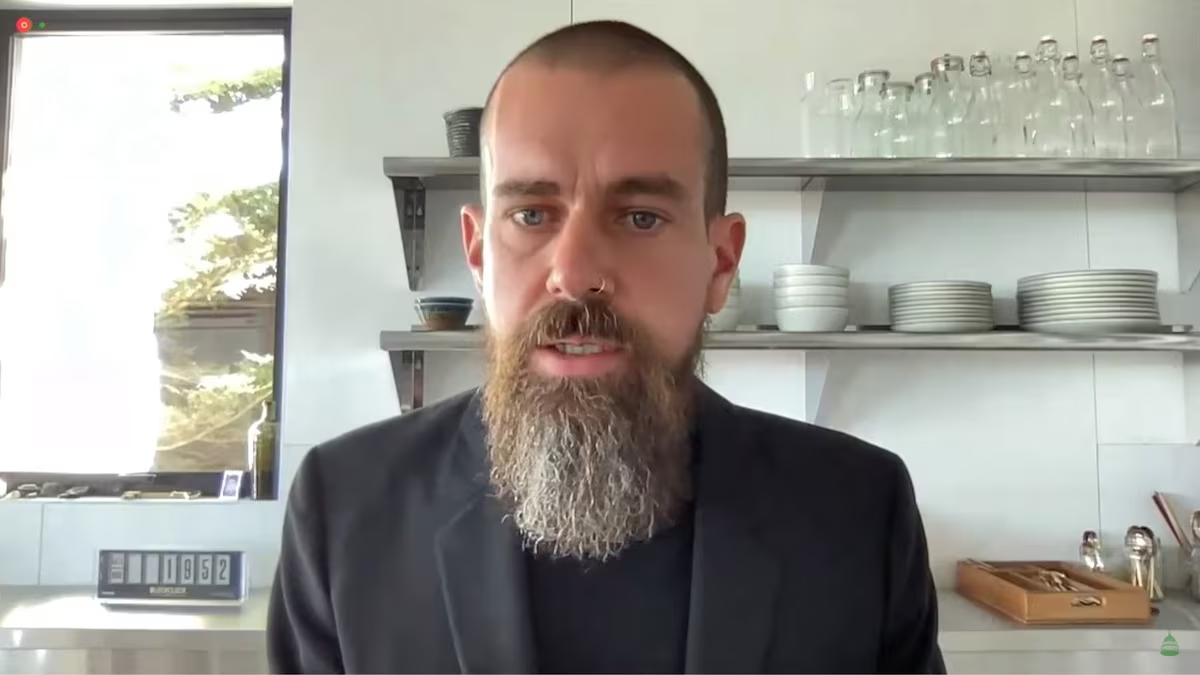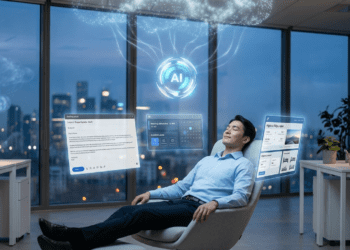The Bubble Admission
In a rare moment of candor that sent shockwaves through Silicon Valley, OpenAI CEO Sam Altman recently admitted what many economists have been whispering: we’re living in an AI bubble. During an intimate dinner with reporters in San Francisco, Altman didn’t mince words when asked about investor enthusiasm surrounding artificial intelligence.
“Are we in a phase where investors as a whole are overexcited about AI?” Altman posed the question before delivering his blunt assessment. “My opinion is yes.” His comparison to the dot-com bubble of the late 1990s was particularly striking, drawing parallels between today’s AI frenzy and the internet boom that eventually crashed in 2000.
“When bubbles happen, smart people get overexcited about a kernel of truth,” Altman explained to The Verge. “If you look at most of the bubbles in history, like the tech bubble, there was a real thing. Tech was really important. The internet was a really big deal. People got overexcited.”
The OpenAI chief’s acknowledgment comes at a time when AI startups are raising unprecedented amounts of funding. He called it “insane” that some companies with “three people and an idea” are receiving valuations in the billions. “That’s not rational behavior,” he stated firmly. “Someone’s gonna get burned there, I think.”
GPT-5’s Rocky Launch
Altman’s recent public appearances have been partly motivated by the need to address criticism surrounding GPT-5’s launch. The highly anticipated model, which had been hyped for months, received mixed reviews from users who complained about changes to the AI’s personality and writing style.
“I think we totally screwed up some things on the rollout,” Altman admitted during the dinner conversation, as reported by iPhone in Canada. He attributed some of the problems to human error, including misleading bar charts in the livestream presentation that he blamed on exhaustion ahead of the event.
The backlash was swift and vocal. Users protested so strongly that OpenAI had to reinstate the beloved GPT-4o model. Despite the criticism, Altman emphasized that GPT-5 remains the new default, arguing that its comprehensive features make switching between models unnecessary.
However, the numbers tell a different story about user engagement. API usage doubled within two days of the launch, GPU resources maxed out, and ChatGPT continued breaking its own user records. “We’ve learned a lesson about what it means to upgrade a product for hundreds of millions of people in one day,” Altman reflected.
The Human Content Renaissance
Looking beyond the immediate challenges, Altman painted an intriguing picture of the internet’s future. He predicts that human-created content will become increasingly valuable as AI-generated material floods the web.
“I do think people will go to fewer websites. I think people will care more about human-crafted content than ever,” Altman told The Decoder. “My directional bet would be that human-created, human-endorsed, human-curated content all goes up in value dramatically.”
This prediction comes as artists and writers express growing concerns about AI companies training models on human work without consent, then competing directly with those creators. Several recent studies suggest that AI answers in Google searches could significantly reduce traffic to traditional websites, potentially threatening the open web as an information source.
Altman’s vision suggests a future where authenticity becomes premium. As AI-generated content becomes ubiquitous, consumers may increasingly seek out content that carries the stamp of human creativity and verification.
Trillion-Dollar Infrastructure Dreams
Perhaps the most audacious aspect of Altman’s recent statements involves OpenAI’s spending plans. He boldly declared that the company expects to spend trillions of dollars on infrastructure in the “not very distant future.”
“You should expect OpenAI to spend trillions of dollars on data center construction,” Altman told reporters, according to Bloomberg. “And you should expect a bunch of economists to wring their hands and say, ‘This is so crazy, it’s so reckless, and whatever. And we’ll just be like, ‘You know what? Let us do our thing.'”
The scale of this ambition dwarfs even the massive $500 billion Stargate infrastructure venture announced in January, which Altman joined alongside SoftBank’s Masayoshi Son and Oracle’s Larry Ellison at the White House. Altman envisions spending far beyond what Stargate currently entails.
To fund such enormous expenditures, OpenAI is exploring novel financial instruments. “I suspect we can design a very interesting new kind of financial instrument for finance and compute that the world has not yet figured it out,” Altman explained. “We’re working on it.”
The Economics of AI Expansion
Despite acknowledging the bubble, Altman remains bullish on AI’s long-term economic impact. He believes that while some investors will lose “a phenomenal amount of money,” others will make equally phenomenal returns. His confidence stems from his belief that AI represents a fundamental technological shift.
“Is AI the most important thing to happen in a very long time? My opinion is also yes,” he stated. Altman expects that “society as a whole” won’t regret the massive investment in AI infrastructure, even if individual investors face losses.
The path to funding OpenAI’s ambitious plans likely includes a public offering, though Altman declined to provide a specific timeline. The company is currently working through a complex corporate restructuring that has been underway for months. “I do think we have to go public someday, probably,” he acknowledged, while noting he may not be “well-suited” to be CEO of a public company.
Beyond ChatGPT: Expanding Horizons
Altman’s vision for OpenAI extends far beyond its current chatbot offerings. He hinted at plans for standalone applications and even floated the possibility of acquiring Google Chrome if antitrust actions force its divestiture from Alphabet.
The company is also quietly developing an AI-powered browser that could challenge Google’s dominance by integrating ChatGPT-like agents directly into the browsing experience. Additionally, Altman mentioned OpenAI’s interest in social media, potentially creating feeds driven by AI-generated content and image creation.
Perhaps most intriguingly, Altman expressed interest in brain-computer interfaces, stating, “I would like to be able to think something and have ChatGPT respond to it.” This puts OpenAI in potential competition with Neuralink and other companies working on direct neural interfaces.
The Leadership Question
In a surprising personal revelation, Altman hinted that his tenure as CEO might not be indefinite. He projected that an AI system could potentially assume leadership responsibilities within a few years, whether metaphorically or literally. This comment raises fascinating questions about the future of corporate governance in an AI-dominated world.
Market Realities and Future Outlook
While Altman’s trillion-dollar infrastructure plans might sound fantastical, they reflect the enormous computational requirements of advanced AI systems. Training and running large language models requires massive data centers filled with specialized chips, consuming enormous amounts of electricity.
The current AI boom has already prompted tech companies to spend billions on infrastructure. Microsoft, Google, Amazon, and others have dramatically increased their capital expenditures to build the computing capacity needed for AI services. Altman’s projections suggest this trend will accelerate exponentially.
However, the bubble comparison raises important questions about sustainability. The dot-com crash of 2000 wiped out trillions in market value and led to widespread consolidation in the tech industry. If history repeats, only the strongest AI companies may survive a potential correction.
Conclusion: Navigating the AI Revolution
Sam Altman’s recent statements paint a picture of an industry at an inflection point. His admission of a bubble coexists with unwavering confidence in AI’s transformative potential. This apparent contradiction reflects the complex reality of technological revolutions: periods of overexcitement often accompany genuine breakthroughs.
As OpenAI prepares for trillion-dollar infrastructure investments and potential public offerings, the company finds itself at the center of debates about AI’s future. Whether Altman’s bold predictions prove prescient or overly optimistic will likely determine not just OpenAI’s fate, but the trajectory of the entire AI industry.
The coming years will test whether the current AI enthusiasm represents sustainable growth or unsustainable speculation. Altman’s candid acknowledgment of the bubble, combined with his ambitious spending plans, suggests he’s betting that the underlying technology is robust enough to survive any market correction.
For investors, entrepreneurs, and society at large, the message seems clear: we’re living through a pivotal moment in technological history. The question isn’t whether AI will transform our world, but how quickly and at what cost that transformation will occur.
Sources
- The Verge – Sam Altman says ‘yes,’ AI is in a bubble
- iPhone in Canada – Sam Altman Talks GPT-5 Launch Mistakes and Future Plans
- The Decoder – OpenAI CEO Sam Altman says human-made content will “go up in value dramatically”
- Bloomberg – OpenAI’s Sam Altman Expects to Spend ‘Trillions’ on Infrastructure
- Stock Market Watch – OpenAI’s Altman Eyes Trillions for AI Infrastructure









Comments 3